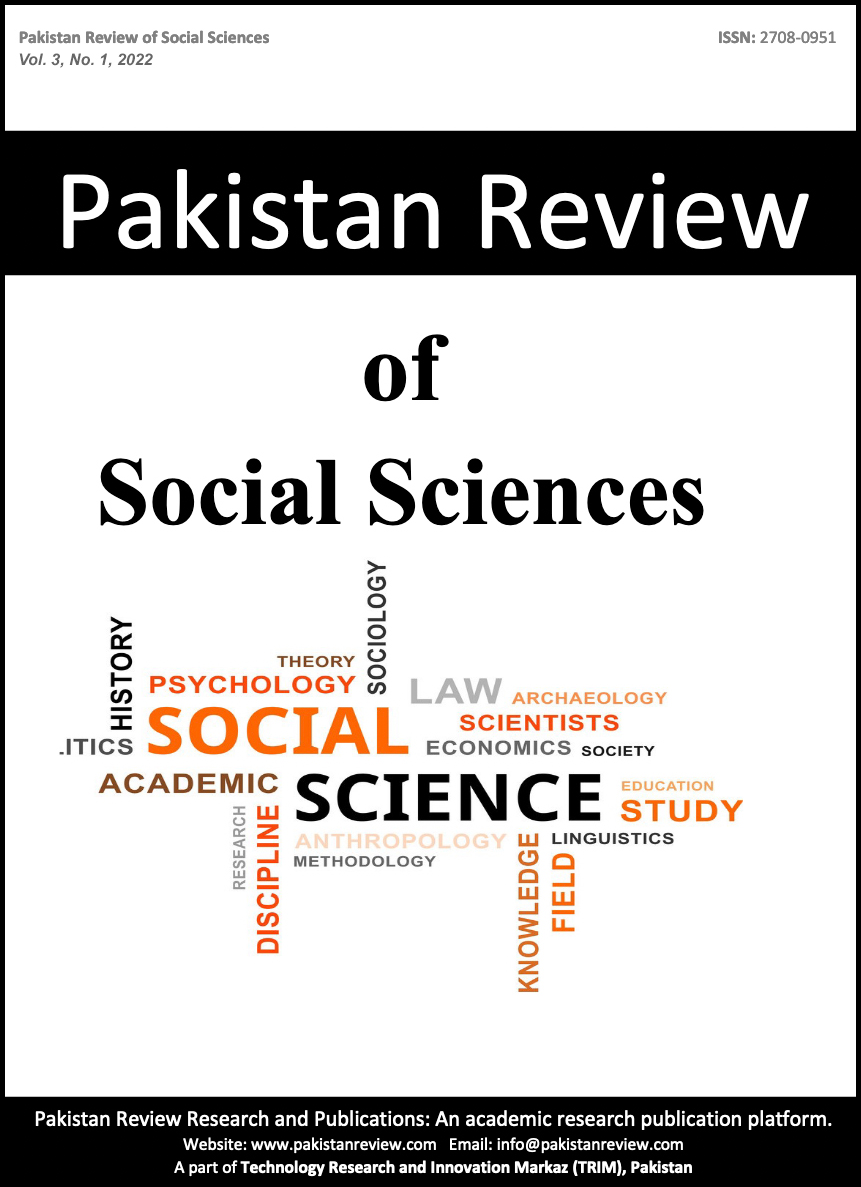A Case Study of Social, Economic and Political Statuses of Transgender in Peshawar
Keywords:
Transgender, Transgender Education, Transgender Inclusion, Transgender RightsAbstract
Over the years, Transgender community remained one of the most marginalized segments of society. Issues related to Transgender community are still considered to be a taboo for which a dearth of research studies has been observed. The recent developments people are trying to understand the intensity of their marginalization in terms of their social, economic and political statuses. Consequently, this study focuses to identify and explains social, economic and political statuses of Transgender community in society of Peshawar qualitatively. The methodology chosen for this research study was case study. Literature review was done systematically as well as critically for this research. After literature review knowledge gaps have been identified in terms of social, economic and political statuses of Transgender in Peshawar. A sample of nine (9) respondents was selected through purposive or judgmental sampling. Data has been collected via semi-structured in-depth interviews. The collected data was then transcribed and split and spliced. After transcription, data has been coded and linkages have been established. After linkages, existing framework, derived from literature, was modified with all the newly emerged factors. Furthermore, qualitative analysis revealed the inter-relationship amongst factors, which shows that Transgender community faces marginalization in their social, economic and political statuses in Peshawar.
Downloads
Published
Issue
Section
License
Copyright (c) 2024 Rooh Ullah, Maaz Ali, Azhar Ali

This work is licensed under a Creative Commons Attribution 4.0 International License.
Submission declaration
Authors retain the copyright to their work and grant the Pakistan Review of Social Sciences (PRSS) the right of first publication under a Creative Commons Attribution 4.0 International (CC BY 4.0) license. This license allows others to share, adapt, and reuse the work for any purpose, including commercial use, as long as appropriate credit is given to the original authors and the journal.
By submitting a manuscript, authors confirm that the work has not been published previously (except as an abstract, lecture, or academic thesis), is not under review elsewhere, and has been approved by all authors and relevant authorities. Once accepted, the article will be openly accessible under the CC BY 4.0 license, ensuring wide dissemination and reuse with proper attribution.






